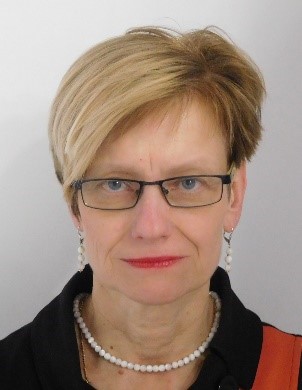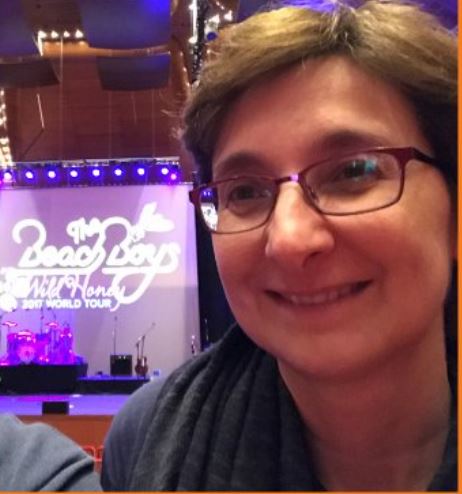- Resource Center
- Professional Development
- Articles & Videos
- GALA Champion Kateřina Gašová
6 February 2023
| by Globalization and Localization Association
GALA Champion Kateřina Gašová
In this series of interviews, GALA members share their insights on the pursuit of globalization & localization brilliance. Today’s GALA Champion is Kateřina Gašová.
Katerina Gasova joined the first localization team of Moravia IT s.r.o. in 1994, having previously specialized in technical and legal translations. In 2004 Katerina set the foundation for Moravia's Linguistic Services Department to develop and implement language quality management strategy and expert language-related services at Moravia. She is now Global Quality Director at Argos Multilingual.
As a team leader, expert advisor and mentor, Katerina has been supporting the world-wide team of in-house and in-country linguistic experts in linguistics, quality assurance, terminology management, machine translation quality assessment and post-editing in theory and practice.
Katerina holds a Master’s Degree from Masaryk University in Brno, Faculty of Arts, in English and German Language and Literature. She lives in Brno, Czech Republic.

Starting out in localization
I was very lucky - I just met the right people at the right time. Shortly after the Velvet Revolution in the former Czechoslovakia in 1990, I was invited to join the newly established Moravia Translations, one of the first family-owned translation companies in our country.
Moravia quickly shifted its focus from traditional translation services to software localization requests into the languages of Central and Eastern Europe - a new market for all types of buyers. My first localization project was Oracle Account Payables software and dates back to 1994. The experience gained in that first project(s) influenced my lifelong involvement in the industry: localization is not only about language knowledge and skills, but also about cultural and socio-ethnological awareness, technical savvy and, most importantly, the ability of the localizer to put themselves in the shoes of the product users and/or their customers and to collaborate.
Joining GALA
Moravia IT was a GALA member, so it was easy to subscribe to GALA updates and participate in GALA events.
My experience with GALA started at the GALA conference in Prague in 2010. In 2015, Manuela Noske, who had personal experience with quality management in Moravia from her work on the client side, invited me to prepare a webinar on best practices in quality management. This was the real start of my regular interactions with GALA - an organization that I appreciate very much for its efforts and investments in collaboration and knowledge sharing.
Favorite GALA event or program
I don't prefer one program/event over another. GALA offers a nice mix of opportunities for everyone - buyers, service providers, academia, tool manufacturers - to share knowledge and inspire others or gain insight into best practices, innovative approaches and emerging trends.
Reimagining a new business model for our industry, what would it look like?
I don't think a magic wand is needed if all of us - buyers, service providers, product consumers, academia, tool makers, researchers and developers - just put humanity and people first.
We are in a service industry where people serve people (with the help of tools and technologies, of course).
The current price-per-word model is outdated. What could a new pricing model be?
I don’t see the price-per-word model as outdated or obsolete. In my opinion, “Words” are still the best unit to define the compensation baseline.
The problem I see with this model though, is that the price pressure/cut-cost priority has made it very ambiguous. Very often, it’s unclear what additional/supporting tasks and activities are hidden behind the defined per-word price.
The per-word price today might include a deliverable that has gone through 2-pairs-of-eyes workflow, plus automated quality checks, but it also might include additional human quality inspection steps (LQA), not speaking about pre- or post-processing and additional support provided to translators, depending on the type of content and content use-case/purpose. Or – the MT hype somehow fosters the belief that “because the MT-output quality has so much improved, it’s just ok to light-post-edit the MT output to get a solid target content. With that, translator’s effort is minimal, hence, the per-word rate should be low too”. However, as long as the quality specification is not defined for the target content, nobody knows what “light post-editing” means in terms of required editing scope and related effort (even if MT is really of a good quality).
The concept of Service (Quality) Levels, which is being introduced more and more lately, attempts to address diverse approaches towards a service delivery with regards to varied requirements on target content quality depending on content use-case/purpose.
Once the importance of connecting the specifications of the required “fit-for-purpose quality” with relevant production methods (HT, TM/MT, MT, scope of quality-control steps, profile of talent engaged, extent of engineering tasks and quality management activities) is understood and accepted as an industry standard for Buyer–Service Provider engagements, the per-word price will again have potential to transparently reflect the scope of activities or effort needed to deliver quality related to a particular Service Level.
By the way, the Service Level concept also offers a much more precisely definable space for applying hourly or retainer payment models as it places quality requirements in context of production settings, talent profiles, risk factors and/or content’s business value. For instance, some experimental service models where translators act as language experts with in-depth product knowledge and market insights and are responsible for target content quality and suitability for the given market and end users operate under hourly-based or even retainer payment schemes.
When hiring new people, what are the essential skills and what are the new skills you are looking for?
Challenging question as “essential skills” is quite ambiguous concept to me. Of course, I’m always looking into details on candidate’s previous experience. Still, I take info in candidate’s CV as a starting point on how to lead interview discussion to figure out candidate’s potential.
Openness, creativity, empathy, positivism curiosity, but also ability to connect the dots and see the bigger picture, ability to formulate and structure information are indicators of candidate’s potential to me. – There’s always the element of experience and candidate’s maturity, which are vital when hiring for certain roles. Yet, those are important complementary pluses but not the core values I’m looking for.
What does it take to persuade an organization that localization is really a worth investment?
I'd say there's hardly any manufacturer that would be satisfied with delivering their products/services only within their home market.
Growth is naturally linked to market expansion. Market expansion means getting the product as close to the user as possible. Language is the door opener. User centricity is at the forefront of every marketing campaign, a happy user is the wish and goal of every producer. This makes content/product localization a must.
So the question is not "localization - yes or no", but how much to invest. Discussions about ROI should always take into account aspects such as the specifics of each market and the typical user expectations there, and how these affect the look and feel of the product and the desired in-language user experience.
Any investment in content analysis by use case (flagship, high-priority, low-priority), risk (e.g., product functionality, potential geopolitical and legal implications, cultural fit, inclusivity), and content/product user and user persona identification would typically pay off. Localization requirements would be much more accurately scoped, not only in terms of volume, but also in terms of quality requirements and the associated production costs of quality control and product testing.
What should we as an industry do about the misinformation and the hype surrounding AI? What is your organization doing about this?
The fact that the capabilities of AI are often presented in an attractive way tends to overestimate them. It's understood that truly factual information would only make sense to experts. This means that general audiences are typically presented with only the expected benefits and achievements, and only in a way that is understandable to them.
Instead of appealing messages with nice visions of the future, I'd rather find ways to educate the "non-expert" audience. Concrete examples of use cases (e.g., using AI for TM cleanup (which is what is being used in the organization I am part of now), or explaining data from MT output measurements and analyses along with documented risks, challenges, and benefits could always help promote proven benefits of AI/MT and draw attention to potential issues that should be considered.
What is a professional accomplishment you are proud of?
I just have to repeat what I said at the beginning - I was incredibly lucky. I happened to be in the right place at the right time. And with that, I was given an incredibly unique opportunity - an opportunity to design, define and implement the end-to-end quality management solution at Moravia.
Building a global team of linguistic experts (or should I say experts and enthusiasts?) was the foundation of Moravia Linguistic Services (MLS), a specialized department focused on all aspects of localization quality management. With our unique team, we were able to fill the expertise gap that project managers typically do not have. We successfully implemented a collaborative framework of seamless interactions between production and expert functions (quality, vendor management).
Over time, MLS experts became recognized leaders in quality management - designing and implementing numerous customer-centric quality metrics, introducing the concept of "language ownership" to have a named owner of language-specific quality for a given client (or product), and streamlining interactions between client in-country stakeholders and translation teams.
Working with vendor managers, the most appropriate talent profiles were identified and onboarded. And, of course, the MLSs were there to support the translators. At the same time, they were responsible for defining a quality plan, driving all types of quality controls and evaluations, and running various types of feedback loops. Moravia Linguistic Services - it's been unforgettable years with all the colleagues and impressive, inspiring moments with Moravia's clients.
What is the best career advice you have received?
Listen carefully. Take a deep breath and pause whenever you're about to comment on something you disagree with. Others may have very valid reasons for their statements that you may not be aware of or have not even thought about.
Be curious, because curiosity helps to overcome emotions and turn a negative attitude into a positive one - there's always something new to discover and learn.
Do you want to contribute with an article, a blog post or a webinar?
We’re always on the lookout for informative, useful and well-researched content relative to our industry.

Isabella Massardo
Content strategist at GALA. A linguist and technologist who has lived in Italy, Russia and the Netherlands. Through GALA, Isabella offers the translation community content that’s relevant, reliable, and timely. She is always on the lookout for thought-provoking globalization and localization topics.


